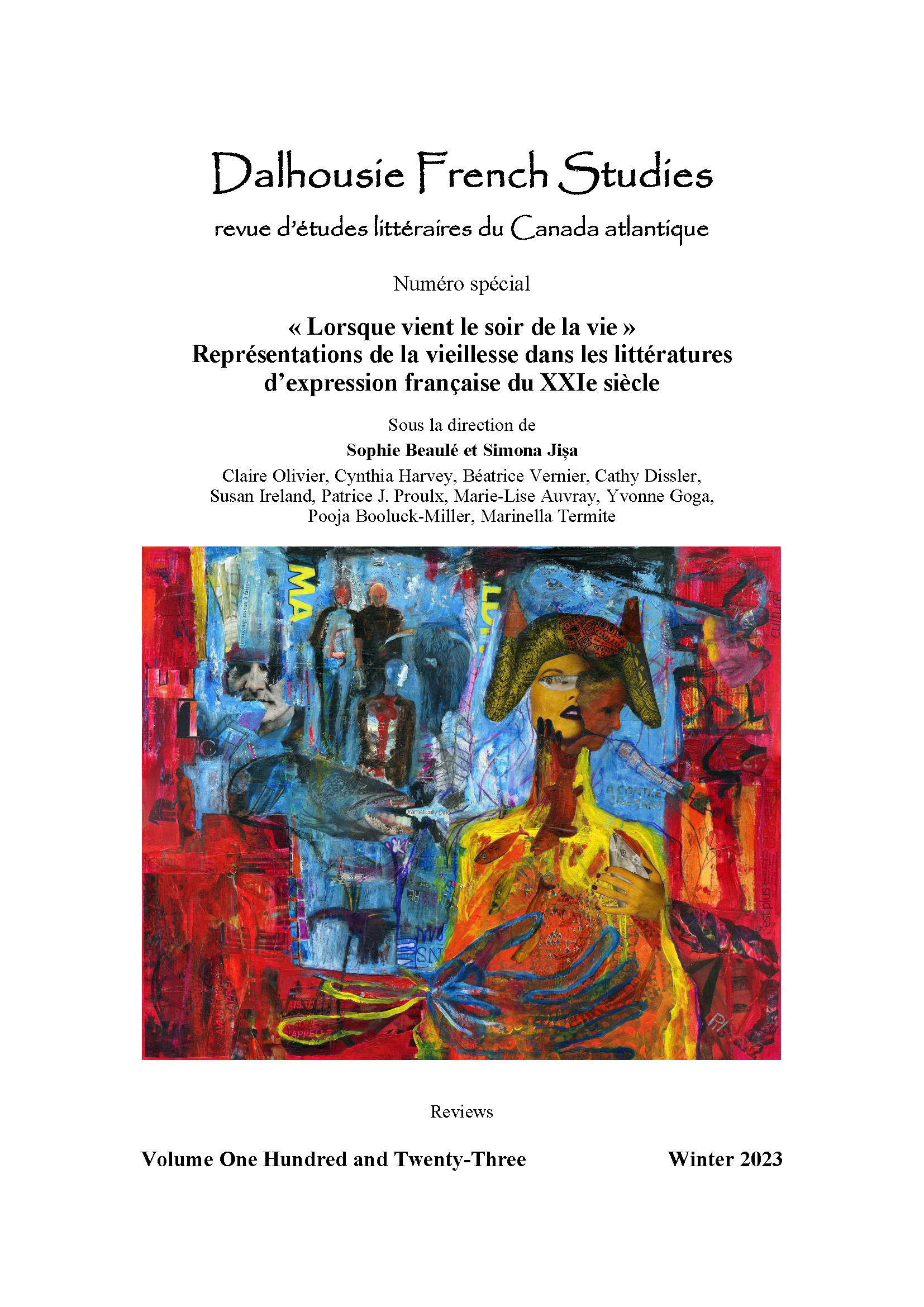Approche de la mort, réactivation filiale et démarche artistique dans De synthèse de Karoline Georges et Chemin Saint-Paul de Lise Tremblay
Abstract
Chemin Saint-Paul (2015) by Lise Tremblay and De synthèse (2017) by Karoline Georges both describe death and its throes as experienced by the dying parents, but mainly by their daughter-narrators. Death throes serve, first, as a springboard to revisit the family past. Such a trajectory is bruising but marked with discoveries. Death throes also lead the narrator to reassess her relationship with her parent, at the very time when she must endorse the responsibilities that care demands. In Tremblay’s autofiction, the relation with the dying father bathes in gentleness; the relation with the mother, on the contrary, is characterized by tension, as the latter goes from craziness to Alzheimer’s disease. The situation is reversed in Georges’ novel. The narrator will progressively rebuild a connexion with her mother, while remaining distant from her father, whom she does not know to be dying. Finally, in each novel the death of the parents generates reflection on the artistic progression, or even destiny, of the narrator.


